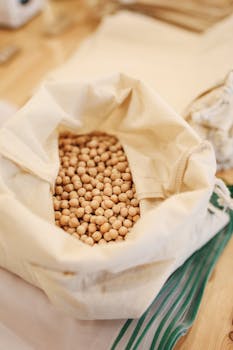As a cat parent, you may often wonder what human foods are safe for your furry friend. Chickpeas, also known as garbanzo beans, are a popular staple in many diets. But can cats eat chickpeas safely? Let’s dive into the nutritional facts, potential risks, and safe feeding guidelines to help you make the best decision for your feline companion.
🐱 Are Chickpeas Safe for Cats?
The short answer is yes, chickpeas are not toxic to cats. However, this doesn’t mean they are the ideal snack for your feline. Cats are obligate carnivores, meaning their primary nutritional needs come from meat. Chickpeas, while packed with nutrients for humans, don’t offer much value for a cat’s diet.
That said, small amounts of plain, cooked chickpeas can be safe for cats. The key is moderation and preparation. Let’s take a closer look at what makes chickpeas potentially problematic or beneficial for your pet.
🌟 Nutritional Benefits of Chickpeas
Chickpeas are high in fiber, protein, and essential nutrients like folate, iron, and magnesium. While these benefits are great for humans, they don’t translate as effectively for cats. Cats’ digestive systems are designed to break down animal proteins, not plant-based foods.
Still, in small amounts, chickpeas may offer:
- Dietary fiber to aid digestion
- A plant-based protein source (though less effective than animal protein)
- Vitamins and minerals like B vitamins and potassium
However, these benefits are minimal compared to the nutrients your cat gets from a balanced, meat-based diet.
🚨 Risks of Feeding Chickpeas to Cats
While chickpeas are not inherently toxic, there are risks to be aware of before sharing them with your cat. Feeding chickpeas inappropriately can lead to digestive upset or other health issues.
Here are the potential risks:
- Digestive issues: Cats may struggle to digest chickpeas due to their high fiber content, leading to gas, bloating, or diarrhea.
- Seasonings and additives: Many chickpeas in canned or cooked forms are seasoned with salt, garlic, onion, or spices, which are toxic to cats.
- Allergic reactions: Though rare, some cats may be allergic to legumes, including chickpeas.
- Choking hazard: Whole chickpeas can be difficult for cats to chew and may pose a choking risk.
These risks highlight the importance of preparing chickpeas properly and feeding them in moderation.
✅ Safe Feeding Guidelines for Chickpeas
If you want to offer your cat chickpeas as an occasional treat, follow these guidelines to ensure their safety and well-being:
- Only feed plain, cooked chickpeas. Avoid canned chickpeas with added salt or seasonings.
- Start with a very small amount (e.g., half a teaspoon) to see how your cat reacts.
- Mash or puree the chickpeas to avoid choking hazards and make them easier to digest.
- Monitor your cat for any signs of digestive upset, such as vomiting or diarrhea.
- Never replace your cat’s regular diet with chickpeas. They should only be an occasional treat.
Remember, treats like chickpeas should make up no more than 10% of your cat’s daily calorie intake. The rest should come from a complete and balanced cat food.
🤔 Can Cats Eat Hummus?
Hummus, a popular dip made from chickpeas, is not safe for cats. It often contains harmful ingredients like garlic, onion, lemon juice, and salt, which can be toxic to your feline friend. Even plain hummus should be avoided, as the added oils and spices are not suitable for cats.
🩺 What to Do If Your Cat Eats Chickpeas
If your cat accidentally eats a small amount of plain, cooked chickpeas, there’s likely no need to worry. Monitor them for any signs of discomfort, such as vomiting, diarrhea, or lethargy. These symptoms are usually mild and resolve on their own.
However, if your cat consumes seasoned or canned chickpeas, or shows severe symptoms like difficulty breathing or extreme lethargy, contact your veterinarian immediately. Ingesting toxic ingredients like garlic or onion requires urgent medical attention.
FAQs
Can kittens eat chickpeas? No, kittens should not eat chickpeas. Their digestive systems are more sensitive than adult cats, and they require a diet specifically formulated for growth and development.
Are canned chickpeas safe for cats? No, canned chickpeas often contain added salt and preservatives, which are not safe for cats. Always opt for plain, cooked chickpeas without any additives.
How often can I feed my cat chickpeas? Chickpeas should only be an occasional treat and make up no more than 10% of your cat’s daily calorie intake.
What are the signs of an allergic reaction to chickpeas? Signs of an allergic reaction include itching, swelling, vomiting, or diarrhea. If you suspect an allergy, consult your veterinarian.
References
Book a $49 online vet consultation at https://www.dialavet.com for fast, expert advice.








